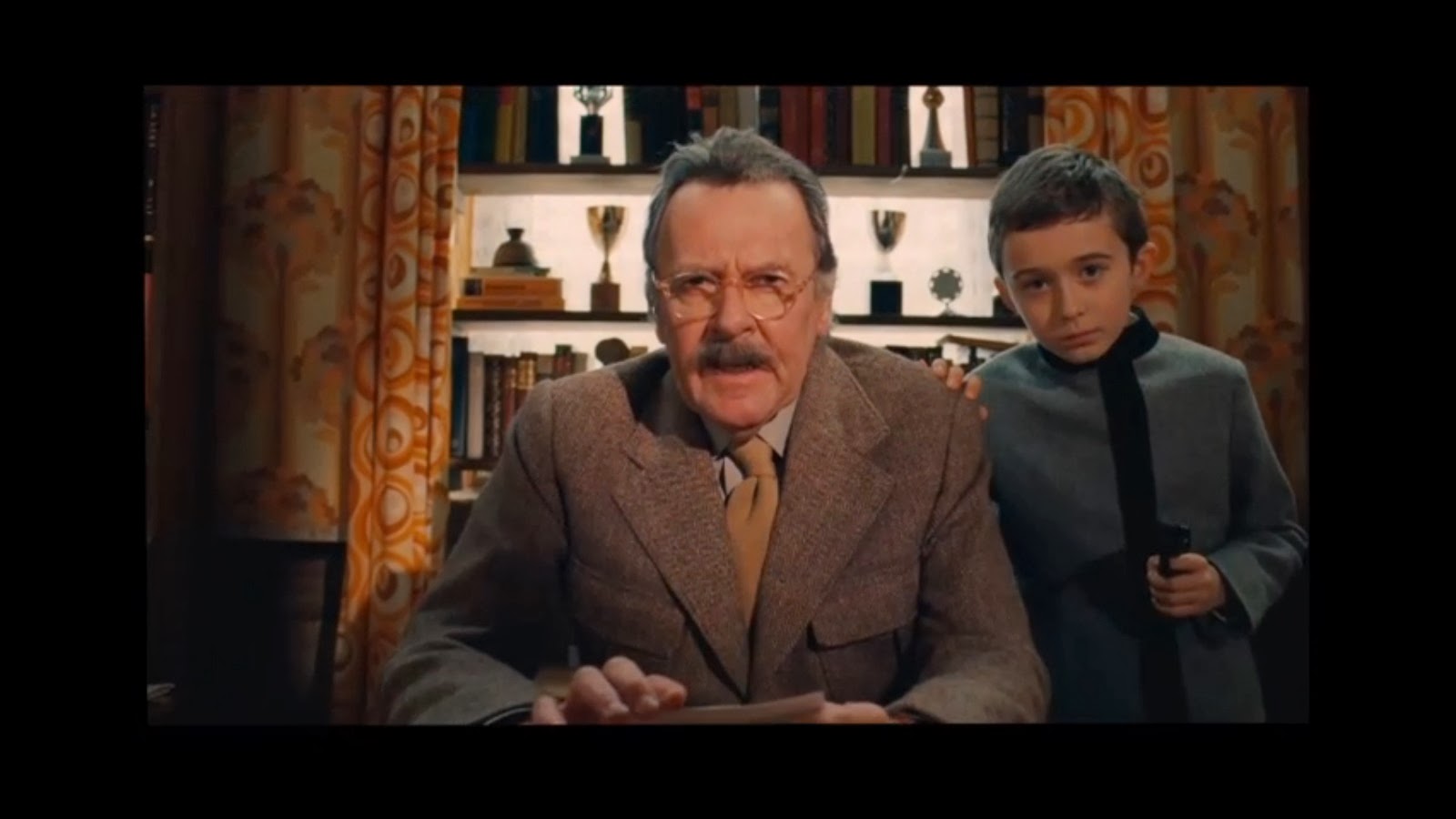Remember This Scene?: 'The Grand Budapest Hotel'

I still haven't settled on which film would be my pick for the best of 2014, but if it's based on how many times I've watched it, one film rises to the top: Wes Anderson's "The Grand Budapest Hotel."
My cinematic visit to The Grand Budapest was an introduction to Anderson's quirky and hotly debated style. For some, Anderson's directorial touch is fiercely unique and whimsical. To others, it's just a checklist of idiosyncrasies that never allows for creative growth and prefers style over substance. The list of Andersonian traits is so well-known that SNL skewered it brilliantly in a trailer parody.
Maybe I wouldn't be as fond of 'Grand Budapest' if I had seen Anderson's work beforehand, but you can definitely place me on the 'pro' side of this debate. Anderson's films are so wonderfully indulgent and layered, as he uses a wide variety of cinematic techniques to express his nostalgia for worlds that never truly existed. It's escapist absurdity at its most exquisite.
READ MORE: 9 Movies We Can't Get Sick Of Watching
But the funny thing is, the greatest strength of 'The Grand Budapest Hotel' has nothing to do with its visual style. Yes, it's nice how Anderson designed the hotel like a big pink dollhouse and filmed it all in various spec ratios depending on the time period being presented. But that finely crafted veneer doesn't become spellbinding if it isn't filled with intriguing characters who say unusual things. It's Anderson's lush wordplay that brings it all together, helping the audience understand what it's like to live in the strange world set before one and all on the screen.
Let's take a look at the opening scene of 'Grand Budapest' in which we are introduced to the hotel by the narration of an unnamed, yet supposedly world-famous, author. The narration is started by Tom Wilkinson and then continued by Jude Law, who plays the author's younger self in a flashback to the 1960s.
There's a specific reason why Anderson chose to introduce us to the fictional nation of Zubrowka through a writer. "The Grand Budapest Hotel" was inspired by and a homage to Stefan Zweig, an Austrian novelist who held a deep love of European art and high culture. Zweig's taste and passion for the finer things in life -- as well as his despair at the thought of losing it all to jackbooted tyranny -- is reflected in the film and Anderson's overall philosophy towards filmmaking. Take a look at Wilkinson and Law's opening monologue to see the flowery prose in action:
"A number of years ago, while suffering from a mild case of "Scribe's Fever," a form of neurasthenia common among the intelligentsia of that time, I decided to spend the month of August in the spa town of Nebelsbad below the Alpine Sudetenwaltz, and had taken up rooms in the Grand Budapest, a picturesque, elaborate, and once widely celebrated establishment. I expect some of you will know it."
"What few guests we were had quickly come to recognize one another by sight as the only living souls residing in the vast establishment, although I do not believe any acquaintance among our number had proceeded beyond the polite nods we exchanged as we passed in the Palm Court, in the Arabian Baths, and onboard the Colonnade Funicular. We were a very reserved group, it seemed, and, without exception, solitary."
It's already elaborate just when reading it, but when spoken by the actors, Anderson's words come alive. The words Anderson picks just roll and bounce off the tongue. Anderson never goes for a simple explanation, instead choosing to describe his setting with proper names and SAT words. Instead of "disease," it's "neurasthenia." Instead of "staying" at the hotel, he's "taking up rooms."
READ MORE: 8 Movies To Look Forward To This Fall
Go ahead and read those words aloud and imagine being an actor that's been presented the script for the first time.This is the kind of screenwriting that actors can dig into like a decadent chocolate cheesecake that's just been taken out of the fridge. It's one of the many reasons why big name stars drop everything for the chance to be in a Wes Anderson film in much the same way that Quentin Tarantino and David Mamet became thespian magnets with their works.
From here, Anderson's love of the written word only expands. We meet a protagonist with a penchant for reciting poetry, and we see the journey his apprentice takes as he learns the art of five-star hotel hospitality. We watch Anderson build a world that he and Zweig would have loved to have been a part of, and then admit that such a world could never truly last. And yet, the film reminds us, remnants of that world still live on through the writers who either lived in it or listened to the stories of those who did. 'The Grand Budapest Hotel' begins and ends its tale through the eyes of such a writer; and in much the same way, while Anderson is known for his visual quirks, it is his rich screenplays that cement his legacy.
Find other "Remember This Scene?" posts here. Reach Jeremy Fuster here. Follow him on Twitter here.



